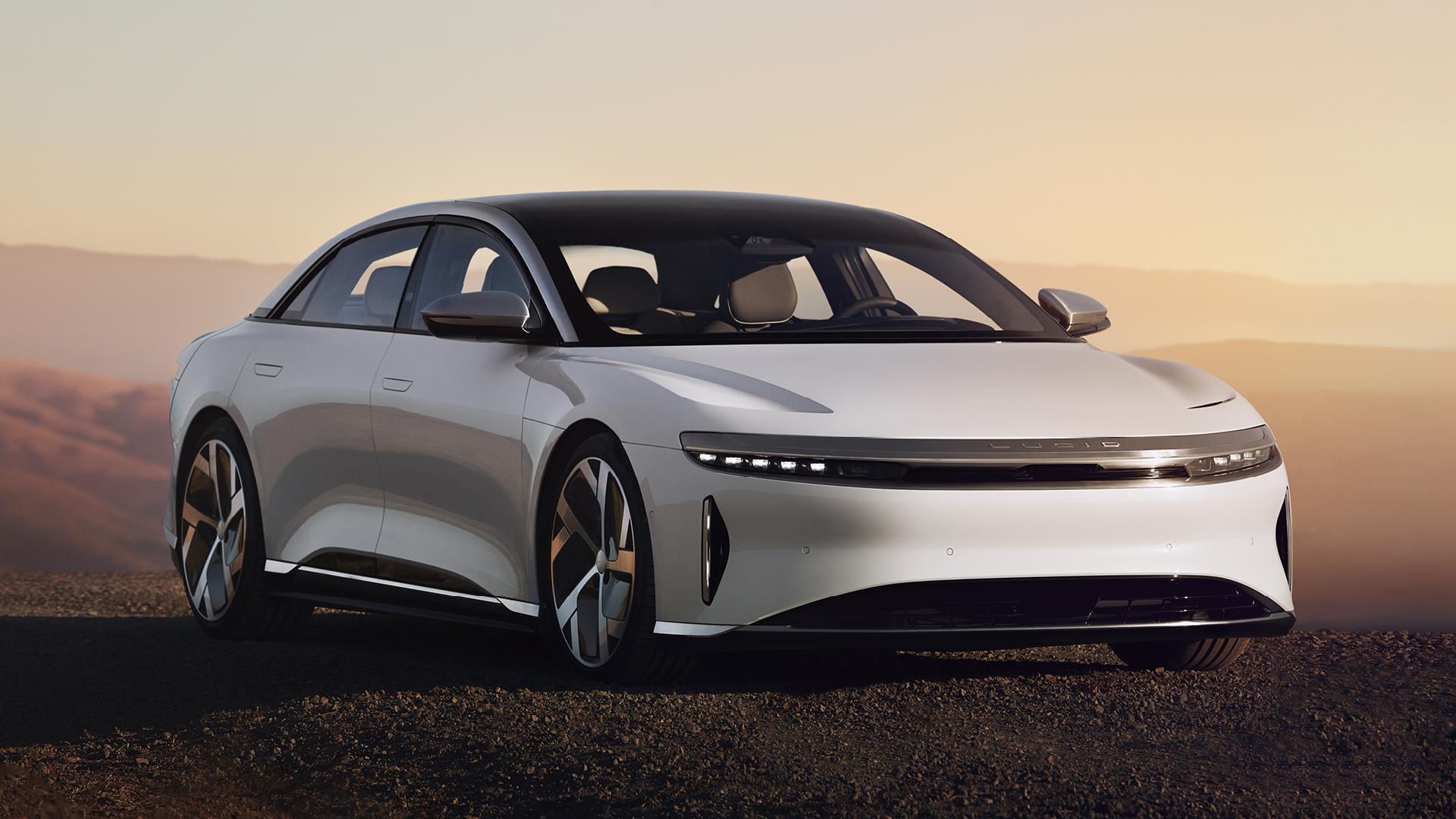Saudi Arabia-backed electric vehicle maker Lucid Group is to launch models with near-full autonomy in partnership with chip leader Nvidia, accelerating its self-driving programme and bidding to challenge market leader Tesla.
Lucid is to use Nvidia’s Drive AV system, which comes with level 4 autonomous driving capabilities, in its mid-sized vehicles, the California car maker said during the Future Investment Initiative conference in Riyadh on Wednesday.
Level 4 refers to the second-highest of the six levels of autonomy, from 0 to 5, in which vehicles do not require human intervention under most circumstances. Level 5, the highest, requires no human attention, and vehicles with this status may not even have steering wheels or pedals.
Lucid, in which Saudi Arabia’s Public Investment Fund has a majority stake, did not provide a timetable for the launch of level-4 EVs.
In July, Lucid teamed up with ride-hailing company Uber Technology and US robotics company Nuro to launch a global robotaxi programme, with Uber planning to use at least 20,000 Lucid vehicles equipped with the level-4 Nuro Driver platform across six years.
“We’re taking the next step by combining cutting-edge artificial intelligence with Lucid’s engineering excellence to deliver the smartest and safest autonomous vehicles on the road,” Marc Winterhoff, interim chief executive of Lucid, said on Wednesday.
Driverless, or autonomous, vehicles are seen as the future of transport, and major companies are racing to advance the technology, trying to perfect their platforms.

Could Gulf states be the ideal location for self-driving vehicles?
These vehicles, which have attracted billions in investment, are meant to support the sustainable transport agenda countries for which most countries are aiming.
And despite the progress made, safety concerns still linger – for instance, flaws in software found in cars made by Elon Musk’s Tesla have forced recalls.
But with enhanced AI, powered by new-generation hardware and software, “vehicles evolve into software-defined supercomputers on wheels”, said Jensen Huang, chief executive of California-based Nvidia. “A new opportunity emerges – to reimagine mobility with intelligence at every turn,” he added.
Separately, Nvidia said Lucid will be adopting the former’s Omniverse platform to build digital twins of its factories that will allow real-time factory planning and optimisation.
Omniverse is a computing platform that lets users develop 3D workflows and applications using the Universal Scene Description programme – a high-performance and extensible software platform – in a faster way, boosted by AI and using little to no code.
A digital twin, meanwhile, is a virtual representation of an object or system and is one of the core components of the Metaverse.
Lucid will use Omniverse to train AI-driven robotics systems as well, Nvidia said at its GTC conference in Washington. The platform will also be used by Taiwanese chip makers Foxconn and TSMC, as well as Japan’s Toyota Motor Corporation in Japan, “to accelerate AI-driven manufacturing”.




